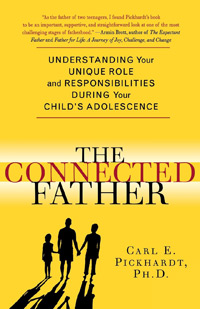 When I was seven I drew shapes in pencil all over my pink gingham wallpapered bedroom. When my mother discovered the artwork and asked why I’d done it I didn’t try to pass it off as my younger brother’s doing. Instead, I truthfully owned up to the deed, explaining, “I felt like being naughty.” With a nod of understanding my mother implemented and oversaw a rigorous restoration project that cleaned the walls.
When I was seven I drew shapes in pencil all over my pink gingham wallpapered bedroom. When my mother discovered the artwork and asked why I’d done it I didn’t try to pass it off as my younger brother’s doing. Instead, I truthfully owned up to the deed, explaining, “I felt like being naughty.” With a nod of understanding my mother implemented and oversaw a rigorous restoration project that cleaned the walls.
When I was fifteen my best friend’s older sister took Gabby and I down to the woods on the riverbank in our town and taught us to smoke cigarettes. After coughing and choking my way through the experience, I rinsed my mouth, popped in a stick of gum and marched home—where I confessed the whole sordid experience to my mother. Again, she nodded in understanding while I tearfully asked if she still respected me.
What makes some children lie while others tell the truth? According to Eileen Rosenthal, a board-licensed educator and mother of two incredibly honest children, “When a child can trust a parent to be fair and reasonable he or she feels safe to risk honesty. Offering respect, trust and a willingness to listen allows a parent to raise a conscience without raising a voice.”
As Rosenthal’s daughter I agree with that: When I was seven I didn’t feel the need to lie. By the time I was 15 I didn’t want to.
 How to (re)build trust in your relationship with your teen
How to (re)build trust in your relationship with your teen
While kids between the ages of 6 and 8 are found to lie the least, a new study published in the journal Acta Psychologica found that the frequency of lying peaks in adolescence with 2.8 lies per day. Teens were also found to be some of the best liars, perhaps, researchers surmise, because immediately suppressing the truth without exterior signals requires an enormous amount of executive control, something teens have in abundance since the prefrontal cortex is approaching its sharpest point.
Driven by self-preservation or the desire to shield someone else, everyone learns to choose how to let go of the truth (and not get caught) or to be straight up. For parents teaching teens to develop a moral code lack of empathy or understanding will quickly sink the boat of truth. Instead, compassion and guidance more effectively combat the science of human instinct.
Parenting from a place of compassion means understanding that teens lie for the same reason adults do: because it’s easier than bearing responsibility and accepting consequences. In an interview with Yahoo! Parenting, child and family psychotherapist, Fran Walfish explains, “Most people lie to get out of accountability or to avoid owning up to an error…that’s generally the case with teenagers.” How to deal with this? Walfish teaches parents to praise the truth rather than enact harsh punishment for the offense. Plus, “Sit with your teen and say that you understand why they told a specific lie, but that for you to feel secure, you need them to be honest.”
 Dr Carl Pickhardt, author of The Connected Father, agrees that communication is a key tool. Writing on Psychology Today Pickhardt echoes the popular belief that lying is a normal part of the adolescent quest for freedom, a process that necessitates breaking boundaries, testing limits, and defining values. Reversing this trend in your teen, Pickhardt suggests, begins by sharing that “the ‘easy way out’ turns out to be extremely expensive, particularly for teenagers who have gotten so deeply into lying that they feel trapped in a world of dishonesty.” Encourage kids to tell the truth by itemizing a list of lying’s costs, including how liars:
Dr Carl Pickhardt, author of The Connected Father, agrees that communication is a key tool. Writing on Psychology Today Pickhardt echoes the popular belief that lying is a normal part of the adolescent quest for freedom, a process that necessitates breaking boundaries, testing limits, and defining values. Reversing this trend in your teen, Pickhardt suggests, begins by sharing that “the ‘easy way out’ turns out to be extremely expensive, particularly for teenagers who have gotten so deeply into lying that they feel trapped in a world of dishonesty.” Encourage kids to tell the truth by itemizing a list of lying’s costs, including how liars:
- Injure loved ones
- Are doubly punished (for wrongdoing and lying)
- Live in fear of being caught
- Hurt themselves with deceitful behavior
- Become confused in the web of lies they create
- Feel increasing stress as lying behaviors expand
- Ruin credibility
Licensed Clinical Professional Counselor, Megan Devine, adds another powerful approach to helping kids feel understood, respected and supported so that they develop a comfort level with telling the truth. Devine counsels, “Start a discussion with your child about honesty and dishonesty, and why they choose to lie… focus on the problem your child is trying to solve instead of on the morality of lying. You may not be able to stop your teen from creating those everyday lies, but you can send the message that there are other options available.”
Parenting from the perspective of teaching problem-solving skills as lessons in honesty develops in your teen not only a penchant for truth-telling but also a creative mental skillset that supports success in many of life’s arenas. Being honest with teens about honesty, it seems, is the best policy to ensure its use.
Click here to see Rose’s tips for healthy and happy relationships

